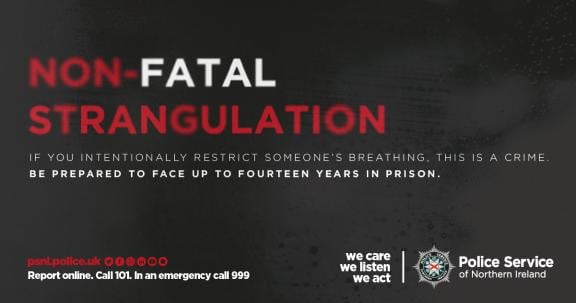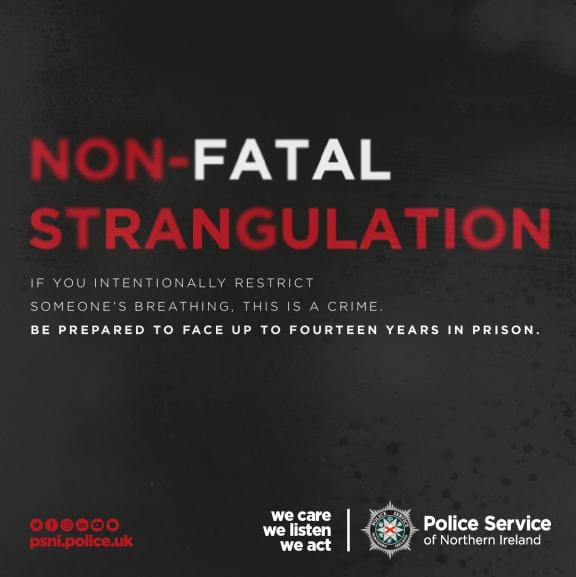What happens if someone is strangled?
It is common for strangulation to leave no visible signs of injury and consequences can be delayed by days or weeks. These include stroke, cardiac arrest, miscarriage, incontinence, seizures, memory loss and long-term brain injury.
Consciousness can be lost after as little as four seconds of arterial pressure. Blocking the jugular vein can take less pressure than opening a can of fizzy pop. Loss of consciousness indicates at the very least, a mild brain injury.
Below are some of the more common health complications as a result of non-fatal strangulation:
- Problems breathing, difficulty breathing while lying down, shortness of breath, persistent cough or coughing up blood
- Loss of consciousness or “passing out”
- Changes in your voice or difficulty speaking
- Difficulty swallowing, a lump in your throat, or muscle spasms in your throat or neck
- Swelling to your throat, neck or tongue
- Increasing neck pain
- Left or right-sided weakness, numbness or tingling
- Drooping eyelid
- Difficulty speaking or understanding speech
- Difficulty walking
- Headache not relieved by over the counter medication
- Dizziness, light-headedness or changes to your vision
- Pinpoint red or purple dots on your face or neck, or burst blood vessels in your eye
- Behavioural changes, memory loss or confusion
- Thoughts of harming yourself or others
Has this not always been a criminal offence?
It has been a challenge to prosecute this offence under previous legislation, as investigating police officers had to prove intent to commit an indictable offence. For example, if someone had been strangled in what was believed to be a sexually motivated attack, the officer would have to prove that the perpetrator intended to commit sexual assault.
This new legislation means that non-fatal strangulation is now a standalone offence.


